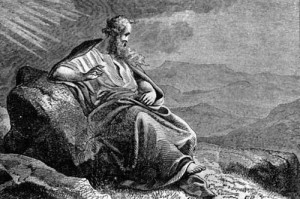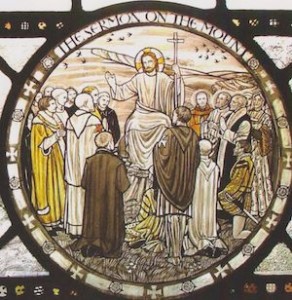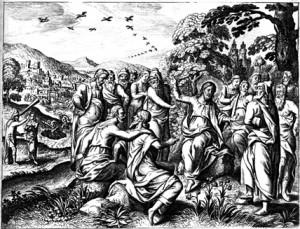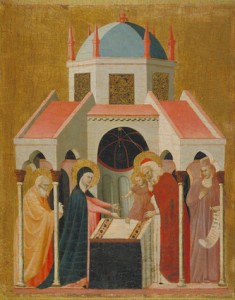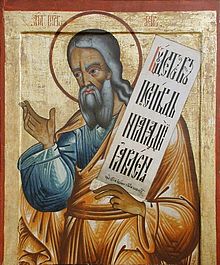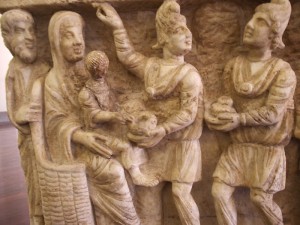Thoughts on Today’s Lessons for Sunday, Feb. 16, 2014
On the banks of the Jordan as the people prepare to cross into the promised land, Moses preaches the core of Old Testament teaching: Follow God’s commandments, and you will inherit the land. Defy God’s wishes, and you will lose the land and die. From Sinai to the Jordan, he people have repeatedly heard this covenant: Be righteous, be just. Care for the poor and the weak; the widow, the orphan and the stranger. And when the people fail, the prophets will rise up to remind them of God’s promise, which will play out in the loss of the land, the destruction of the Temple, and exile.
Alternate First Reading: Sirach 15:15-20
We rarely hear readings from Sirach, one of the “deuterocanonical” books (also known as Apocrypha) that come at the end of the Old Testament. Called “The Wisdom of Jesus, ben (Son of) Sirach” in the original Greek, Sirach took the Latin name “Ecclesiasticus” after the Emperor Constantine. It sums up God’s teaching (“Torah”) in the genre of wisdom literature: brisk, memorable advice akin to the Book of Proverbs. Today’s reading reminds us that we are given free will. God does not force us to keep God’s commandments – we may choose either fire or water – but God is all-knowing and wise and does not wish us to sin.
Psalm: Psalm 119:1-8
Today we hear only the first eight verses of this, the longest of the Psalms. But its central message, reinforcing the covenantal agreement that we heard in Deuteronomy, remains consistent through all 176 verses: God’s laws are wonderful, and those who follow that teaching and walk in God’s ways will be rewarded. The Psalmist calls on God to keep him steadfast in following God’s teaching.
Second Reading: 1 Corinthians 3:1-9
We continue working through the opening chapters of First Corinthians this week, listening in as Paul writes pastorally to a bickering church that has split into factions. Last week it might have sounded as if Paul was praising the Corinthians for a spiritual maturity that enabled them to understand the ways of God that aren’t so clear to those less mature. But no! Paul makes it clear that the Christians of Corinth have a long way to go. Their quarreling factions show that they aren’t ready for spiritual food, Paul warns, adding that we are all God’s servants. When we work together, God uses us to build and grow.
Gospel: Matthew 5:21-37
The Sermon on the Mount, which takes up three full chapters in Matthew’s Gospel, is all about discipleship, the hard work of following Jesus. In today’s passage, Jesus takes three commandments that we think we know, and reinterprets them in radical new ways. It’s not just “Do not kill” but do no harm; even respond to your enemies in peace! Do not commit adultery? No, treat women with respect! Do not bear false witness? No, do more: Be honest, be true, say exactly what you mean!

